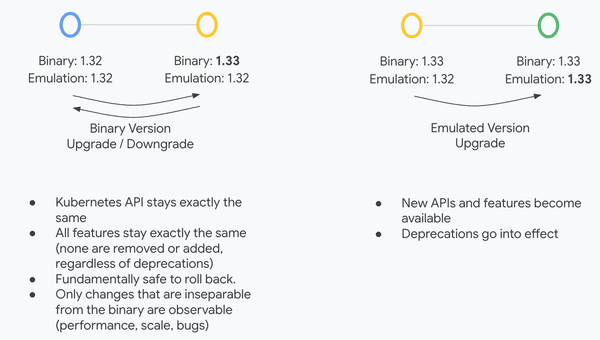Python is Just Foreplay, JVM is the Main Course! Eclipse’s New Open-Source Solution Runs Agents on K8s Without Changing Stacks

We Cannot Throw Away Ten Years of Experience Just to “Build a New Team and Replace the Entire Stack”
---



Introduction
The Eclipse Foundation recently introduced the Agent Definition Language (ADL) into its open-source Eclipse LMOS platform — a structured, model-agnostic description method to define AI behavior without writing code.
ADL is set to become a core component of LMOS, an intelligent agent computing platform designed to run natively on Kubernetes and Istio, serving the JVM ecosystem.
Its aim: rebuild AI agent development and operations pipelines for enterprise-grade use through a unified, open approach.
Notably, LMOS started life as a production-level practice within Deutsche Telekom’s cloud-native architecture before being incubated into the Eclipse Foundation.
Open-source repository: https://github.com/eclipse-lmos
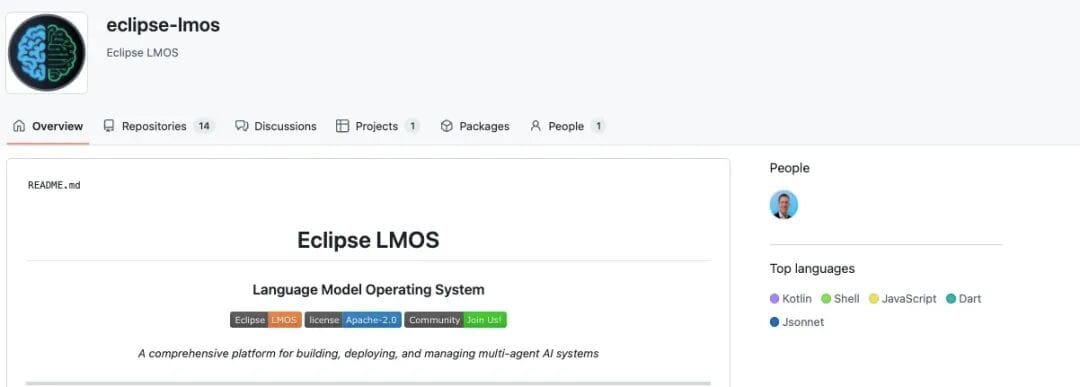
---
1. Technical Convergence: Building AI on Familiar Skill Stacks
The Modern Cloud Paradigm
- Microservice architecture separates concerns and enables flexible recombination.
- Full containerization supports migration and deployment anywhere.
- Horizontal scaling is achieved easily by replicating instances.
The Generative AI Disruption
Generative AI has pushed enterprises to:
- Master completely new skill stacks.
- Navigate a flood of new frameworks (e.g., LangChain, Spring AI).
Persistent challenges remain:
- Accelerating development speed.
- Reusing existing enterprise resources efficiently.
For JVM-based enterprises, starting from scratch is wasteful. LMOS investigates how AI can be integrated into existing, proven tech stacks — avoiding a costly full-stack rewrite in Python.
---
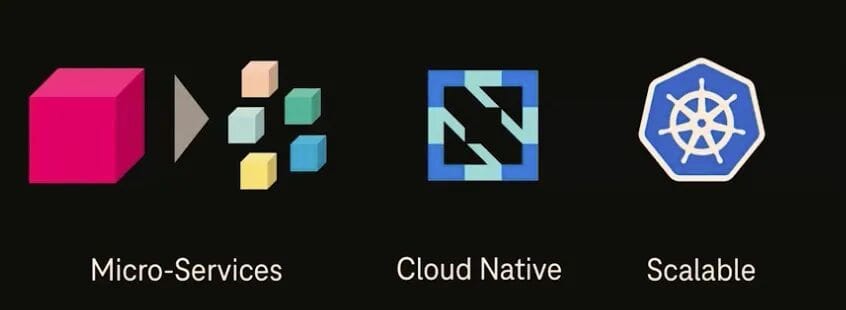
> "We cannot throw away ten years of experience just to build a new team and replace the entire stack."
Origin Story: Deutsche Telekom's Challenge
Under Arun Joseph’s leadership:
- Needed AI for sales and customer service in 10 European countries.
- All enterprise tech was JVM-based (Kotlin preferred for AI tooling).
- Complex API ecosystems with years of domain knowledge.
- Required centralized architecture for multi-country deployment.
Solution:
- Build on Kubernetes & Istio.
- Deploy agents/tools as microservices, manage via Custom Resource Definitions (CRDs).
- Integrate deeply into existing DevOps & observability workflows.
---
Key Benefits
- Fast deployment cycles: from 1 month → 15 days → 1–2 days per agent.
- Small, efficient teams: pairing one data scientist + one engineer.
- Avoid uncontrolled infrastructure bloat and multi-SDK fragmentation common in “Python-only” stacks.
By the end of 2023:
- Expanded from 3–4 countries to 10 countries.
- Handovers to human agents dropped by 38%.
- Handling 4.5M sessions/month — one of Europe’s largest production AI Agentic systems.
---
2. How to Fuse the Best of Classical Domains into One Platform
Eclipse’s dual-track strategy:
- LMOS Platform – now open source, cloud-native orchestration.
- ADL (Agent Definition Language) – allows wider participation in agent creation, even for non-engineers.
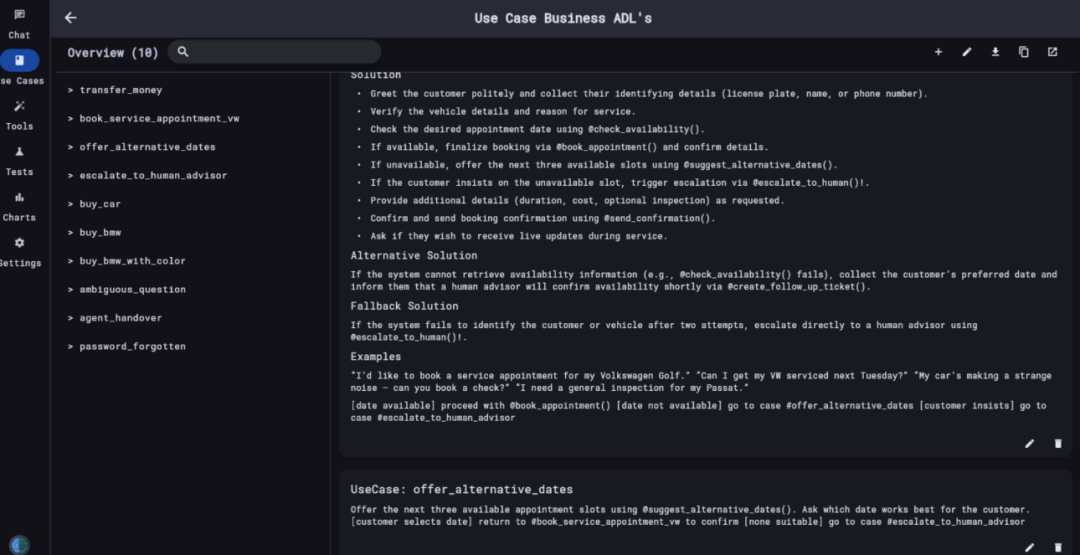
---
Why ADL Matters
- Business context embedded into agents for better decision-making.
- Natural-language prompts cannot be versioned or audited — ADL fills this gap.
- Reduces complexity by formalizing reusable patterns in AI-agent design.
---
LMOS Core Modules
- ADL
- Structured, model-agnostic.
- Supports visual creation and multi-role collaboration.
- Behaviors are versioned, traceable, maintainable — replacing fragile prompt engineering.
- ARC Agent Framework
- JVM/Kotlin-based.
- IDE-level dev experience and visual debugging.
- Engineers focus on business APIs and integration logic.
- LMOS Platform Layer
- Cloud-native orchestration for agent lifecycle, semantic routing, and observability.
- Integrated control plane and runtime management via LMOS Operator.
---
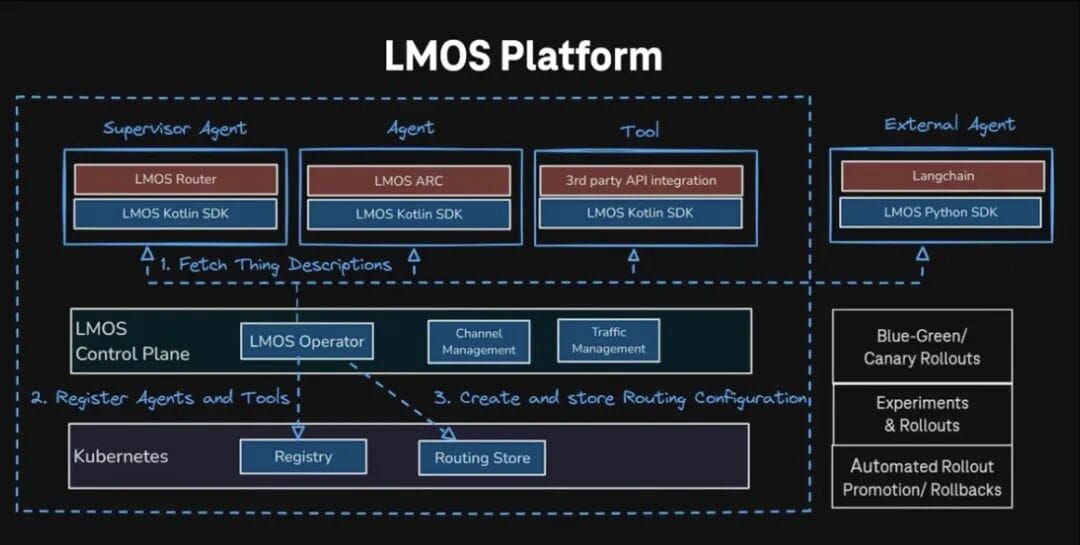
LMOS Protocol:
- Supports agent discovery and interoperability.
- Inspired by W3C, Matter/Thread, Bluesky AT Protocol.
- Enables cross-organizational AI agent communication.
---
3. Final Thoughts
In the enterprise AI landscape:
- Python-startup approach: agile, experimental, and fast.
- JVM-enterprise approach: stable, controlled, long-term maintainable.
Eclipse LMOS bridges this gap — letting enterprises:
- Deploy AI agents natively in managed JVM systems.
- Avoid starting from zero.
- Ramp up complexity gradually, with full control.
---
Mike Milinkovich, Executive Director of Eclipse Foundation:
> “With Eclipse LMOS and ADL, we are providing a robust open platform enabling any organization to build scalable, intelligent, and transparent agent systems.”
---
Related Ecosystem Example: AiToEarn
Platforms like AiToEarn:
- Open-source global AI content monetization.
- AI content generation + cross-platform publishing + analytics + model ranking.
- Multi-platform support: Douyin, Kwai, WeChat, Bilibili, Xiaohongshu, Facebook, Instagram, LinkedIn, Threads, YouTube, Pinterest, X (Twitter).
Complementary to LMOS:
- LMOS focuses on AI agent infrastructure.
- AiToEarn focuses on AI creativity monetization and distribution.
---
Reference Links
- https://thenewstack.io/eclipse-opens-up-enterprise-ai-agent-development-with-adl/
- https://www.youtube.com/watch?v=gcpHYtqTBbA
- https://www.infoq.com/presentations/ai-agents-platform/
- https://www.youtube.com/watch?v=gHqP5Hx9gbU
Disclaimer: Translated and compiled from InfoQ. Opinions are the author's only. Unauthorized reproduction prohibited.
---
Recommended Reading
- Once earning millions a year, can architects now rely on AI?
- Nano Banana pushes Google’s revenue to record highs
- a16z values 30M developers at $3T
- Sam pours cold water — GPT-5 unexpectedly falls short
---
Conference Preview
AICon 2025 Year-End Event · Beijing — December 19–20
Topics: Agents, Context Engineering, AI product innovation.
Network with experts from leading enterprises and startups.
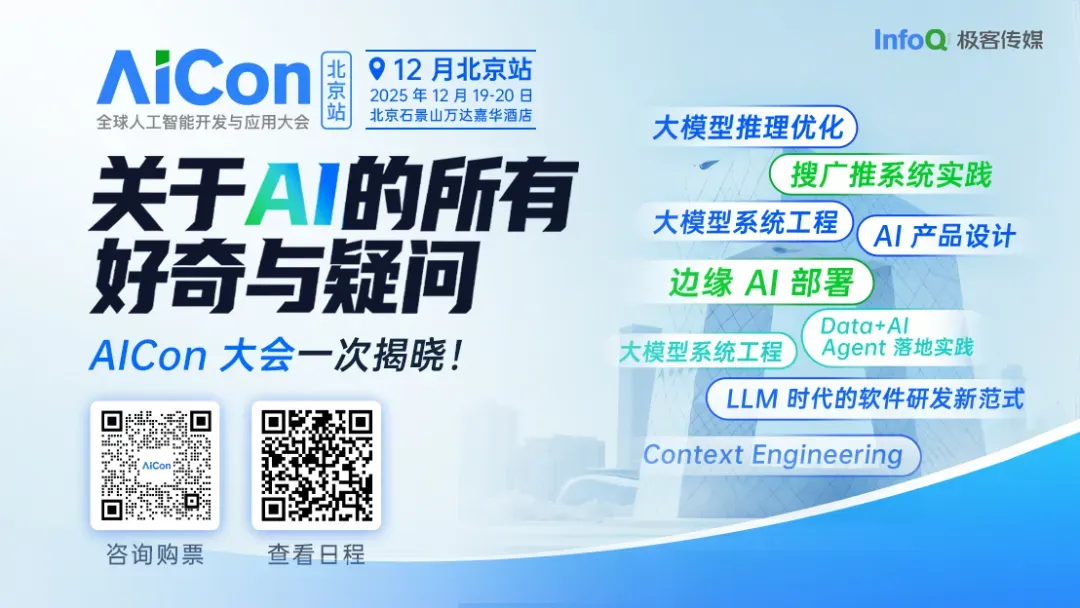
Read Original Article | Open via WeChat
---
If you'd like, I can also create a summarized “action points” section from this rewritten piece, so readers instantly get the key steps for adopting AI agents without replacing their tech stack.
Would you like me to add that next?


